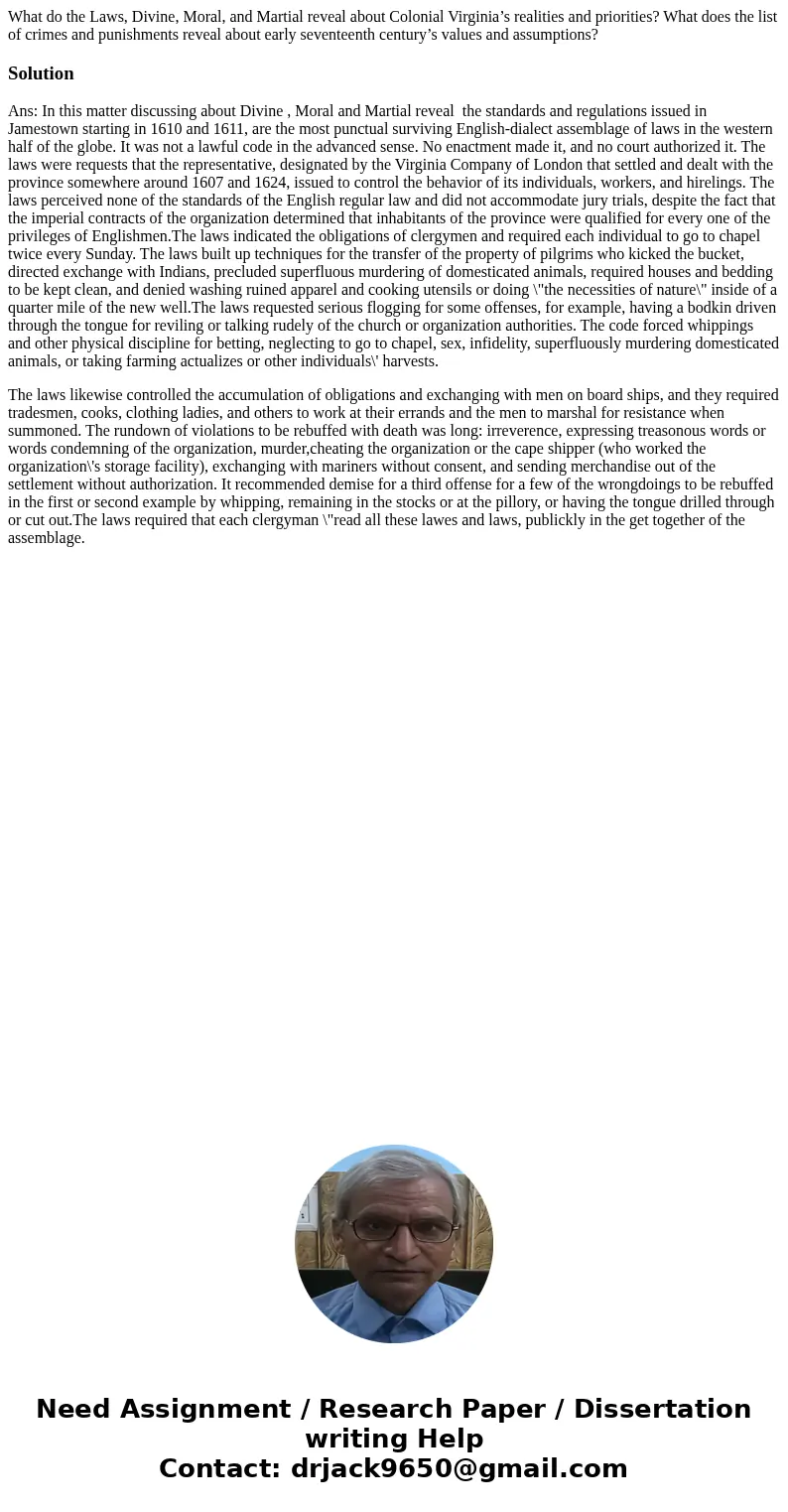What do the Laws Divine Moral and Martial reveal about Colon
What do the Laws, Divine, Moral, and Martial reveal about Colonial Virginia’s realities and priorities? What does the list of crimes and punishments reveal about early seventeenth century’s values and assumptions?
Solution
Ans: In this matter discussing about Divine , Moral and Martial reveal the standards and regulations issued in Jamestown starting in 1610 and 1611, are the most punctual surviving English-dialect assemblage of laws in the western half of the globe. It was not a lawful code in the advanced sense. No enactment made it, and no court authorized it. The laws were requests that the representative, designated by the Virginia Company of London that settled and dealt with the province somewhere around 1607 and 1624, issued to control the behavior of its individuals, workers, and hirelings. The laws perceived none of the standards of the English regular law and did not accommodate jury trials, despite the fact that the imperial contracts of the organization determined that inhabitants of the province were qualified for every one of the privileges of Englishmen.The laws indicated the obligations of clergymen and required each individual to go to chapel twice every Sunday. The laws built up techniques for the transfer of the property of pilgrims who kicked the bucket, directed exchange with Indians, precluded superfluous murdering of domesticated animals, required houses and bedding to be kept clean, and denied washing ruined apparel and cooking utensils or doing \"the necessities of nature\" inside of a quarter mile of the new well.The laws requested serious flogging for some offenses, for example, having a bodkin driven through the tongue for reviling or talking rudely of the church or organization authorities. The code forced whippings and other physical discipline for betting, neglecting to go to chapel, sex, infidelity, superfluously murdering domesticated animals, or taking farming actualizes or other individuals\' harvests.
The laws likewise controlled the accumulation of obligations and exchanging with men on board ships, and they required tradesmen, cooks, clothing ladies, and others to work at their errands and the men to marshal for resistance when summoned. The rundown of violations to be rebuffed with death was long: irreverence, expressing treasonous words or words condemning of the organization, murder,cheating the organization or the cape shipper (who worked the organization\'s storage facility), exchanging with mariners without consent, and sending merchandise out of the settlement without authorization. It recommended demise for a third offense for a few of the wrongdoings to be rebuffed in the first or second example by whipping, remaining in the stocks or at the pillory, or having the tongue drilled through or cut out.The laws required that each clergyman \"read all these lawes and laws, publickly in the get together of the assemblage.

 Homework Sourse
Homework Sourse